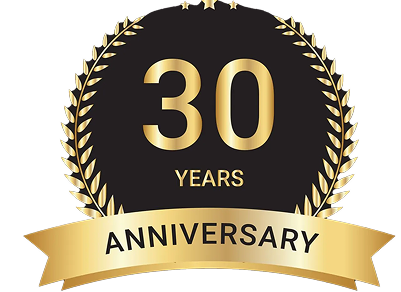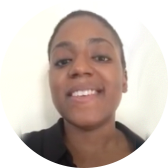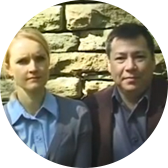Chicago Lemon Law Attorneys
¡Se habla español! Diga con nuestros abogados de ley limón en Chicago hoy.
Driving is a way of life in Chicago. Thus, getting around the city or the surrounding suburbs without a working vehicle often feels impossible. So, when your car starts giving you trouble in Chicago, it’s more than a little inconvenience.
Thankfully, if you bought a new vehicle that doesn’t perform as it should, you may be entitled to a refund or a replacement vehicle. Under the Lemon Law in Chicago, vehicle manufacturers are required to repair the defective vehicles they sell or otherwise compensate the individuals who purchased or leased them.
In these situations, the Illinois Attorney General recommends turning to an experienced lawyer to get the justice you deserve. At Krohn & Moss, Ltd., we offer decades of experience with handling Lemon Law claims to help Chicagoans secure the recovery they’re owed. If you have a new vehicle that the manufacturer has failed to repair, reach out to us today so we can help!
Schedule your FREE CASE REVIEW with Krohn & Moss, Ltd. today. It’s our job to help you secure the replacement vehicle or buyback you’re entitled to.
Is Your Vehicle a Lemon?
Lemons earn the title by having a defect that affects the vehicle’s use, value, or safety. However, a defect alone doesn’t make a car a lemon. The issue must be covered by the manufacturer’s warranty and must persist after the manufacturer has been given a reasonable opportunity to repair it.
Cars, trucks, and other types of passenger vehicles can all qualify as Lemons. However, the Lemon Law in Chicago limits protections to those who purchased or leased new vehicles. That said, used vehicles have their own protections via the Magnuson-Moss Warranty Act, which we discuss further down the page.
Understanding the Lemon Law in Chicago
The Lemon Law in Chicago, also known as the New Vehicle Buyer Protection Act, covers most new passenger vehicles that weigh under 8,000 pounds and are designed to carry 10 people or fewer. Individuals with defective vehicles that meet these requirements must also provide the manufacturer with a “reasonable number” of attempts to repair the defect.
Under the law, “reasonable number” can be defined in either of the following ways:
- Multiple repair attempts for the same issue
- Any number of repair attempts that render the vehicle out of service for a total of 30 or more business days
Our Lemon Law attorneys will review the details of your case, counsel you on the best course of action, and reach out to the manufacturer as needed. We’ll take care of everything so that you can stop stressing about your Lemon and simply wait for a settlement offer.
Why Choose Krohn & Moss, Ltd. Consumer Law Center®?
Since 1995, Krohn & Moss, Ltd. has helped over 50,000 claimants in the U.S. secure compensation for defective or misrepresented consumer products. In fact, we successfully secure a recovery for more than 99% of the Lemon Law cases we handle.
Given that we’re based in Chicago, we’re especially familiar with the Lemon Law process in our city. So, when you work with Krohn & Moss, Ltd., you’re working with a team that deeply understands the nuances of the Illinois Lemon Law. Whether your case is complex or cut and dry, rest assured that we have both the knowledge and experience to prevail with any legitimate claim.
Best of all, we offer FREE case reviews, and you’ll owe us nothing until we win or settle your case. You’ve been through enough with the manufacturer—we work hard to make the claims process easy, straightforward, and stress-free.
Expanding Protections in Chicago with the Magnuson-Moss Warranty Act
Although the New Vehicle Buyer Protection Act is a state law, a federal Lemon Law also exists to expand upon your consumer protections. This law, known as the Magnuson-Moss Warranty Act gives individuals additional time to file a Lemon Law claim. In fact, under this federal statute, vehicle owners and lessees typically have up to 4 years from the date of the first failed repair attempt to file suit.
With this in mind, you can still seek compensation after 12 months of ownership (the duration of the state Lemon Law in Chicago). Additionally, individuals who prevail in court with the Magnuson-Moss Warranty Act may be eligible to have their attorney fees covered by the manufacturer. Thus, you have nothing to lose by pursuing a Lemon Law claim, and everything to gain!
Speak to a Lemon Law Lawyer in Chicago
If you bought or leased a defective vehicle, don’t wait to wait! Pursue the replacement vehicle or buyback you deserve!
Call Krohn & Moss, Ltd. today to schedule your FREE CASE REVIEW!
Why Hire Our Chicago Lemon Law Attorneys?
Do You Have A Lemon?
We’ve put together a simple, effective evaluator to help you determine whether or not you have a lemon.
Do I have a lemon? Take the Lemon Test. It Takes Only 60 seconds!
We don't get paid unless we win your case!
Free Case ReviewKrohn & Moss, Ltd. Consumer Law Center® is pleased to comply with state regulations concerning client statements and testimonials:
In order for you to see our client video or read our client statements, please click the green button below. You will be taken directly to the video or client statements.
If you are interested in viewing information about the lawyer/firm’s past results and testimonials about the lawyer/firm, please read and acknowledge the information below.
The information in this section contains information about the lawyer/firm’s past results, testimonials about the lawyer/firm, and statements regarding the lawyer/firm’s quality. The information has not been reviewed or approved by Bar Associations of the states in which the law firm practices.
The facts and circumstances of your case may differ from the matters in which results and testimonials have been provided.
All results of cases handled by the lawyer/firm are not provided and not all clients have given testimonials.
The results and testimonials provided are not necessarily representative of results obtained by the lawyer/firm or of the experience of all clients or others with the lawyer/firm. Past results are no guarantee of future results. Every case is different, and each client’s case must be evaluated and handled on its own merits.
The testimonials or endorsements do not constitute a guarantee, warranty, or prediction regarding the outcome of your legal matter.







